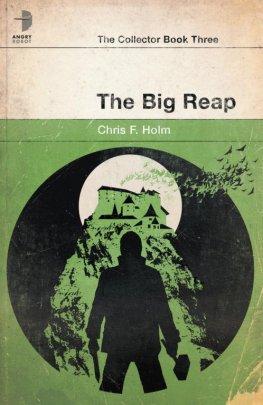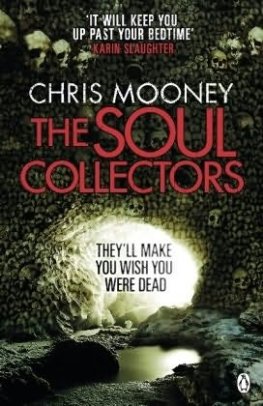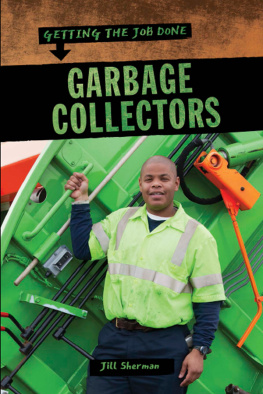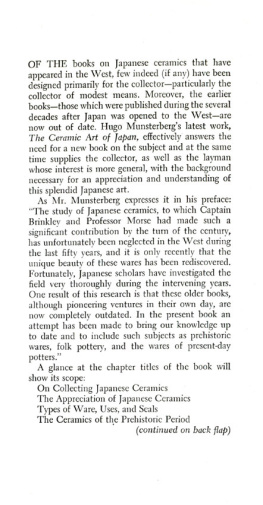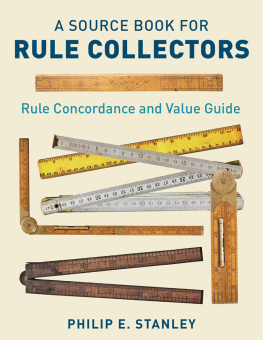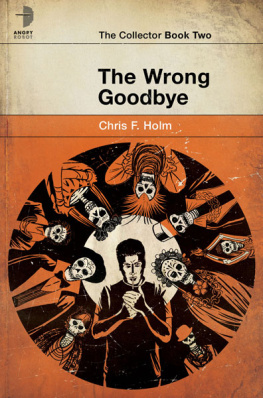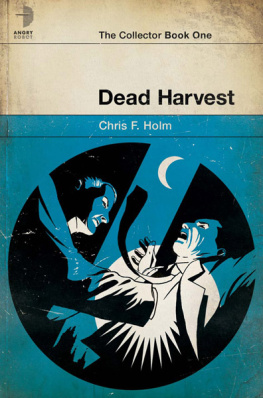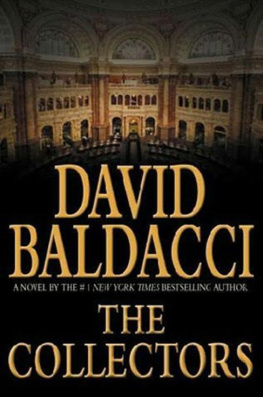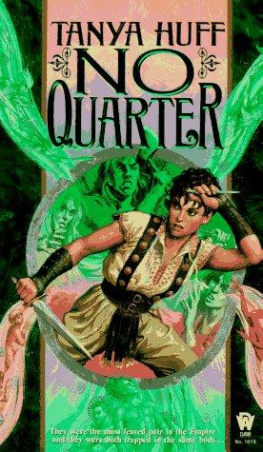Chris F. Holm
THE BIG REAP
The past is never dead. Its not even past.
William Faulkner
The last thing I remembered was dying.
Autumn, 1944. A bitter cold October day. A bustling Manhattan street. Me invisible among the throng, one of the many homeless and bedraggled whose presence is willfully undetected by those more fortunate than they, as if the condition were contagious and acknowledgment the mode of transmission. Id spent my last few weeks among the living camped outside my beloved Elizabeths new abode, desperate for even a glimpse of her for she refused to see me, too, though her reasons were far better than those of the passers-by. Id spent my nights inside a bottle, hoping whatever rotgut I could lay my hands on would soothe my soul and dull the aching chill that leeched upward through the park benches and concrete stoops upon which I lay my head.
But there was nothing I could do to soothe my soul. Because that soul was no longer mine to soothe. Id bargained it away to a demon named Dumas in a desperate attempt to save my dying wife. It worked, for what its worth. But I was unprepared for what it wound up costing.
Shed been sick tuberculosis. Latent for years, and then it wasnt. Liz tried to put on a brave face, but it was no use. I could see her wasting away before me, her pallor growing gray. She tried to hide her red-flecked handkerchiefs from me so I wouldnt worry. I worried plenty. Back then, full-blown tuberculosis was a death sentence, and when youre as dirt-poor as we were, that death was bound to be anything but pretty. I tried to fix that, to make some scratch so we could afford to take her to a decent doctor, but work was hard to come by for a gimp like me. See, a few years back, in San Francisco, me and my union at the foundry walked the picket line for safer work conditions and better wages. At least until our boss sent in some strike-breakers who took their job too literally and busted up my knee but good. That picket lines the last I ever walked without a limp.
Elizabeth was getting sicker by the day, and I was out of options, so I reached out to a local Staten Island hustler by the name of Johnnie Morhaim, who hooked me up with a gig as an errand-boy for union-guy-slash-mobster Walter Dumas. Dumas assured me he could help us, that he could get Elizabeth well. All I had to do was say the word.
Problem was, Dumas, aside from running rallies and rackets from Riverdale to Rockaway Beach, also happened to be a demon not that I realized it at the time and my half of our handshake deal was my immortal soul.
Dumas got Elizabeth into an experimental drug trial some newfangled antibiotic called streptomycin and I wound up Dumas errand boy. Which is to say, I had my fingers in a lot of rotten pies political payoffs, drug smuggling, a brass-knuckled lesson here and there. All justifiable in my mind, because I was helping get Elizabeth well. All anathema to Elizabeth, who slipped away from me with every act of corruption I committed.
I realized that too late. Mistook Dumas for the problem, blamed him for Elizabeths cold distance when really, it was me. Id chosen this path. Id allowed myself to be corrupted. But I didnt see that then. All I kept coming back to was: end Dumas, and all my problems go away.
I had no idea how wrong I was.
I aint the most educated guy youll ever meet. Never been much for reading fancy literature; dimestore potboilers are more my speed which is to say, I never had the finest grasp on the concept of irony. Until Dumas gave me a master-class, that is. See, I shot Dumas dead, or so I thought only it didnt take, since hes not of this mortal coil. But when I did it, I was certain I was taking a human life. Id crossed a line you cant uncross, and the blood I spilled though fruitless, since the son of a bitch was no worse off for it served to seal my devils bargain, condemning me to eternal damnation.
If that aint irony, I dont know what is.
Of course, that evil bastard let me think him dead long enough to confess to my Elizabeth that I had killed him. After that, she couldnt so much as look at me. Couldnt stomach what Id done, what Id become. She threw me out, and who could blame her? I was no longer the man she married. As far as we both knew, I was a murderer.
Eventually, she got well, moved on. Shacked up with some doctor from her drug trial. I told myself it was more for comfort and security than love, as if it mattered, as if it eased the pain a whit. Whatever it was that drove her into his arms, hell let me kick around long enough to watch it happen from afar before finally cashing in its chit on that cold October city street.
It was early evening. The sidewalk was packed. Liz was carrying a bag of groceries as she walked briskly down the street toward the apartment she and Chet for in my mind, thats what Id dubbed the toothsome oaf shared. Id been living on the streets some time by then drunk, sickly, and feverish and though I spent my every waking moment trying to catch a glimpse of her, I must have drifted off a while, because I hadnt seen her leave.
We hadnt spoken since the night of my confession. There was nothing left for me to say Elizabeth had made that excruciatingly clear. But on that day the day of my death her face was downcast, her brow furrowed in worry, and in that moment I wondered if she was thinking of me.
As she passed, I called to her.
When she heard my voice, Liz spun around, her grocery bag falling forgotten to the sidewalk. I watched her peer into the crowd, searching for my face, but with my ratty hair and my twisted scraggle of a beard, she didnt see me looking back at her.
But I saw. I saw too much. I saw the weight she carried in her cheeks, rounding out her face and glowing pink in the chill autumn air. I saw the round swell of her belly, protruding from beneath her woolen jacket. And in that moment, I understood. Why she had pushed me away. Why shed been forced to let me go.
Shed been protecting her child. Protecting our child.
Protecting it from the killer Id become.
It was then, as I stood staring at the woman that I loved and the unborn child Id never know, that hells minion struck.
Hunched inside his woolen overcoat beneath a low-slung pageboy cap, he looked just like any other man on that busy city street, with two exceptions. One: where the others eyes slid right off of me, his locked on and never deviated. And two: where most folks hands were glove-clad or thrust deep into their pockets to protect against the cold, his were bare and exposed.
When he reached me, I found out why.
At first, I thought nothing of him running headlong into me. My focus was on Elizabeth, and he seemed nothing more than a rude New York pedestrian, not watching where he was going. Then he plunged his hand into my chest, a mad cackle escaping his lips.
His fingers clawed at my soul. The pain was excruciating, and I shrieked in sudden agony, though the many passers-by seemed not to notice. Then they and the world around me disappeared, replaced by a swirling gray-black he and I at the center, locked in a morbid, blasphemous embrace.
And as he gouged my soul free from my chest, my body collapsing lifeless to the sidewalk, I could swear I heard Elizabeth call out, one heartbreaking syllable, her voice tremulous and full of hope: Sam?
But she was too late.
I was gone.
Dead.
And for a time, there was nothing.
Blissful. Horrible. Absolute.
Then I woke to the sound of rolling thunder.
Its bass-drum boom shook the walls and ceiling of the dingy tenement apartment in which I found myself, loosing patters of plaster-droppings from the patches of bare wooden laths that dotted the cracked and broken ceiling above like exposed ribs. Its vibrations rattled upward through the cool porcelain beneath me. A bathtub, I realized, freestanding in the corner of the room beside the tiny kitchen, with a curling lip of smooth white all around and a dirt-roughened basin the color of tea. Empty of water, thankfully, since I huddled in it fully clothed, knees to chest, olive drab from head to toe.

